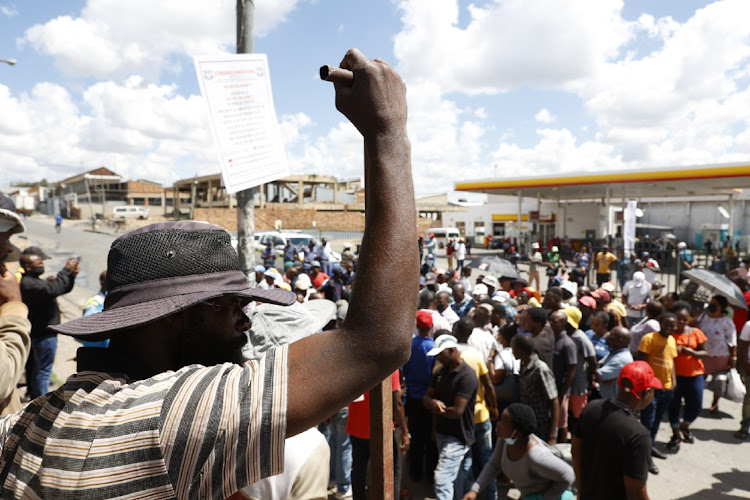We should be treating our neighbours the way we want them to treat us

Xenophobia, like the racism of 100 years ago, is no quick fix for protecting jobs
By S’thembiso Msomi
This month marks 100 years since the Rand was turned into an orgy of bloody violence as what started out as a mineworkers’ strike quickly turned into open rebellion against the government of the Union of SA headed by prime minister Jan Smuts.
The full story of the revolt is skilfully retold by journalist and author Nick Dall elsewhere in the newspaper, so I’ll spare you the details. However, at the heart of the strike, in which 22,000 white mineworkers downed tools, was anger over the Chamber of Mines’ plan to remove the “colour bar” reserving certain skilled and semiskilled jobs for whites.
The labour riots were the culmination of more than two decades of upheavals in an industry hard hit by the Anglo-Boer War and World War 1. With the mining industry in the doldrums by the end of 1920, bosses believed they would make massive savings by scrapping the colour bar, hence making it possible for them to hire more black workers at a fraction of the wages they were paying white labour.

The white mineworkers organised themselves under the slogan “Workers of the world unite and fight for white South Africa”. They clearly thought their interests would best be served by racist laws and regulations that kept black “outsiders” out of “white South Africa” and its labour market.
Though the Rand Rebellion was eventually crushed by the Smuts regime, it played no small part in Smuts’s defeat during the subsequent general election in 1924. He was replaced by a government that had come into being as a result of a pact between the National Party and the Labour Party — the two political parties that had shown sympathy towards the strikers’ demands.
One hundred years later, SA is a different country and operates within a constitutional order that outlaws racial discrimination and promotes equality. Yet the age-old battle over access to jobs and other economic opportunities continues to play itself out.
This past month alone, we have witnessed a number of protests and vigilante activities targeting undocumented immigrants — mostly from Asia and other parts of Africa — who are accused of “stealing” South African jobs.
A colleague, Naledi Shange, was in Alexandra township this week where an organisation calling itself the Dudula Movement went around demanding that business owned by foreigners, or that hire immigrants, be shut down.
On a number of occasions, the Dudula Movement’s actions led to violent clashes as those they wanted to close down fought back.
Justifying their illegal action, one of the Dudula Movement activists told Shange: “If the cycle is not broken now, my sister, who is in school, will go through the same thing. Until when will it be like this? Change has to come and it is now or never. Already we are crowded in Alex — we live on top of each other, we struggle for services and we compete for jobs with foreigners. It’s not OK.”
A few decades from now, our own grandchildren may be migrating to the likes of Nigeria, Uganda and Rwanda looking for opportunities
Like the white mineworkers who, 100 years ago, blamed the presence of black workers for the lack of better-paying jobs, this Alexandra resident believes SA’s high unemployment would miraculously disappear with the deportation of foreign nationals.
But as Wits University professor Loren Landau says elsewhere in this edition, “evicting foreigners will do nothing to create jobs … If anything, it will hurt by destroying business, limiting regional trade and tarnishing Brand SA across the continent.”
We ignore this warning at our peril.
A growing number of political parties and politicians are jumping on the bandwagon of blaming foreigners for our economic woes and high levels of crime, even though they know very well that the causes of high and racialised unemployment are both historical and structural.
They do so out of the belief, sometimes justified, that this will win them votes. We have seen a few whose political fortunes have improved on the back of anti-foreigner sentiments. But in the long run, this will neither improve the lot of the poor and the unemployed nor solve SA’s economic growth and development crisis.
While it is true that SA has an obligation to create and protect jobs for locals, we should not try to do so through means and methods that send a message of hostility towards our neighbours.
Who knows, a few decades from now — especially given the current trend of de-industrialisation and the general decline on both the political and economic fronts — our own grandchildren may be migrating to the likes of Nigeria, Uganda and Rwanda looking for opportunities.
Would we want them to be treated the same way we currently treat others?
S’thembiso Msomi is the Editor of Sunday Times
–Sunday Times







